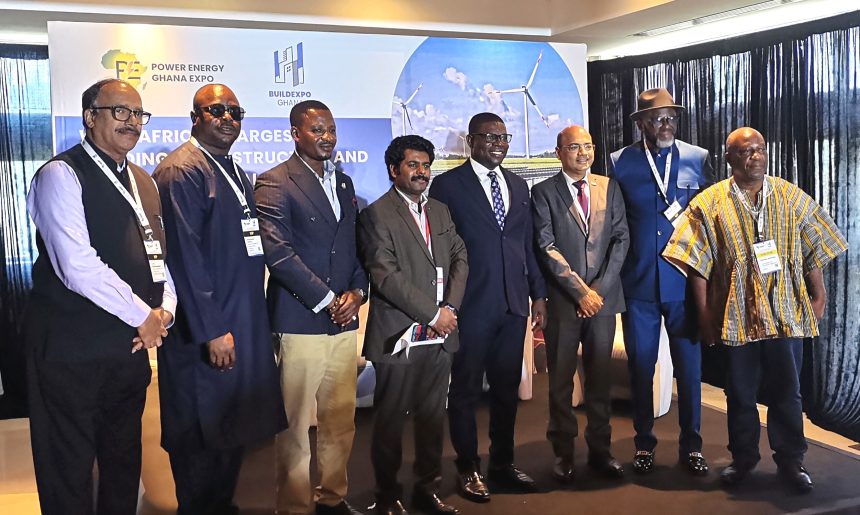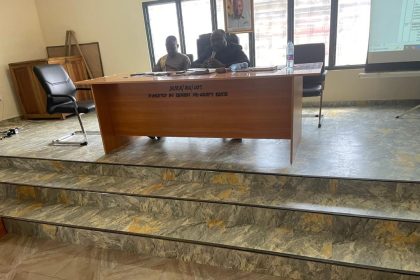The Government of India has welcomed the elevation of its bilateral relations with Ghana to a comprehensive partnership, pledging support for the country’s energy transition.
Mr Manish Gupta, the Indian High Commissioner, said the two nations would collaborate under the new framework to share development experiences and promote technology transfer to advance Ghana’s renewable energy agenda.
Speaking at the fourth edition of the Power Energy Ghana Expo in Accra, Mr Gupta said the growing importance of renewable energy could not be overlooked given its implications for industrialisation and other sectors of the economy.
“Its implications for the agricultural sector, especially in the north, and the vast hinterlands are enormous.
“I have travelled to see the benefits of the solar-powered irrigation facilities, decentralised mini-grids that can really change the fortunes of the northern regions of this country.
“So, these are the areas we can certainly look forward to working with the people. Also, when businesses and industry become part of it, you get access to those knowledge transfers which are happening all over the place, the new developments that you get access to,” he stated.
Ghana’s energy transition plan seeks to achieve net-zero energy-related carbon emissions by 2060, focusing on renewable energy expansion, local empowerment, and sustainable development.
The plan aims to raise the share of renewable energy in the national mix from one per cent to 18 per cent by 2047 through the deployment of low-carbon solutions across the oil and gas, industry, transport, cooking, and power sectors.
The blueprint is expected to boost the nation’s capacity to meet its annual power demand growth of 12 to 14 per cent and enable electricity exports to neighbouring countries to drive economic growth and improve the Gross Domestic Product (GDP).
According to the Ministry of Energy and Green Transition, Ghana’s year-on-year power demand grows by 10 to 15 per cent, with supply often falling short of targets.
The expansion of the industrial and service sectors, rapid urbanisation, rising incomes, and population growth of about 2.3 per cent annually have become key drivers of electricity demand.
Mr Gupta said infrastructural development was another key focus under the comprehensive partnership, aligning with the Government’s ‘Big Push Agenda’, which emphasises massive investment in the road and rail sectors to stimulate broad-based socio-economic growth.
“Once you develop infrastructure, you will realise a whole host of ancillary industries for the benefit of the people,” he added.
Mr Richard Gyan-Mensah, Deputy Minister of Energy and Green Transition, reaffirmed the Government’s commitment to developing incentives to attract manufacturers, assemblers, and other operators in the renewable energy subsector.
“Here in Ghana, we recognise that energy is the backbone of industrialisation -every factory that opens, every business that expands, and every home that lights up is powered by the silent force of electricity and infrastructure.
“That is why Government continues to prioritise reforms, innovation, and private sector collaboration to build a more resilient, inclusive, and future-ready energy economy,” he said.
The Deputy Minister noted that the power sector faced several challenges, including inadequate infrastructure, over-reliance on hydro and gas, high fuel costs, and transmission and distribution losses.
The Government, he said, was accelerating renewable energy adoption, including localisation of solar assembly lines and battery storage systems.
Mr Gyan-Mensah assured that Ghana, in its bid to become a gateway for power supply to neighbouring countries lacking generation capacity, was prioritising solar photovoltaic and wind energy development.
On the 2025 edition of the Power Energy Ghana Expo, dubbed ‘BuildExpo Ghana’, he commended the Indian Government for its collaboration, saying the participation of numerous exhibitors demonstrated the growing importance of renewable energy.
Organised by Synergice Events Private Limited under the auspices of the Ministries of Energy and Green Transition, and Trade and Industry, the event attracted more than 100 exhibitors from Africa, Europe, the United States, China, India, and other regions.
The BuildExpo Ghana has become one of West Africa’s largest exhibitions in building, construction, power, electrical, and energy sectors, providing a platform for global manufacturers, exporters, and industry players to network, exhibit, and engage with partners and customers across the sub-region.





